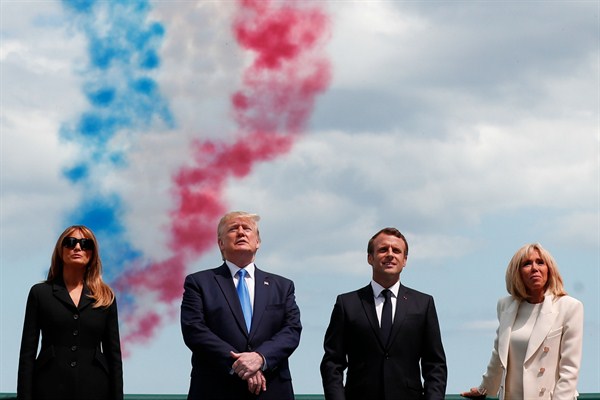Last week, President Donald Trump joined world leaders to commemorate Operation Overlord, history’s most ambitious amphibious invasion and a portent of the extensive U.S. international engagement that was to come in the wake of World War II. The pageantry of the event, which marked the 75th anniversary of D-Day, and the poignancy of the Normandy landings’ last surviving veterans, could not conceal the brutal truth: The ties that have bound the United States to its European partners in the decades since that war are badly frayed.
For the first time in the postwar era, an American president has repeatedly undermined trans-Atlantic solidarity and the open, rules-based international order built upon it. It will be up to Trump’s successor to persuade Americans that modest U.S. global retrenchment need not imply jettisoning the free and open world that the allied invasion of Normandy made possible.
D-Day not only changed the course of World War II but also birthed the modern West. In 24 hours, 150,000 troops poured onto the beaches. By August, 2 million more had followed them, and—with the steady advance of the Red Army on the eastern front—the fate of Adolf Hitler’s “thousand-year Reich” was sealed. Newly liberated France would emerge as one of the victorious powers and take its place alongside the United States and the United Kingdom as one of three permanent Western members on the new United Nations Security Council.

